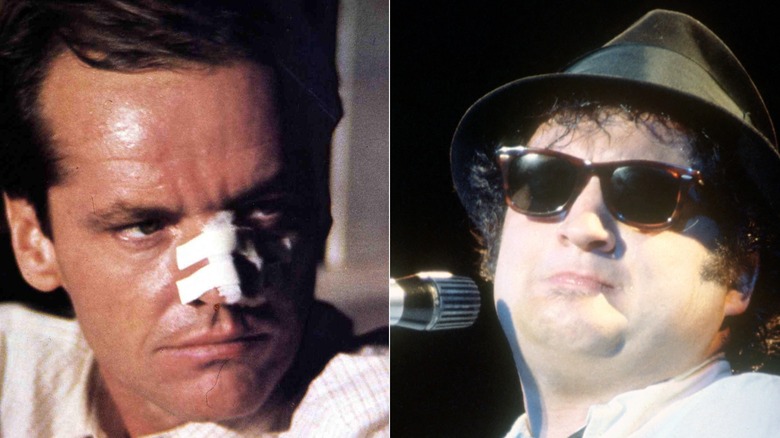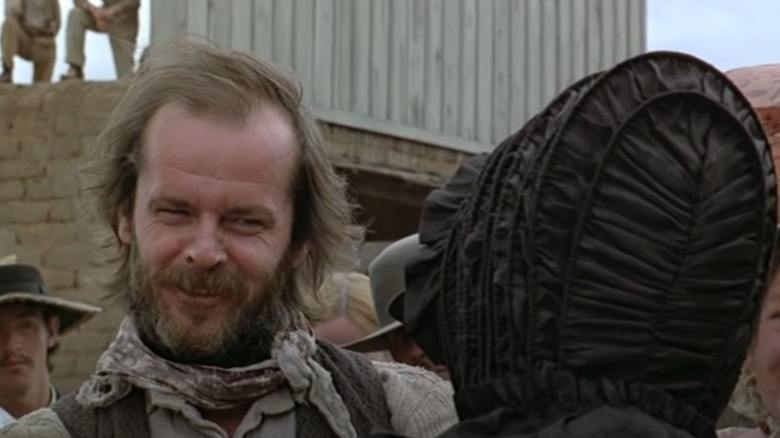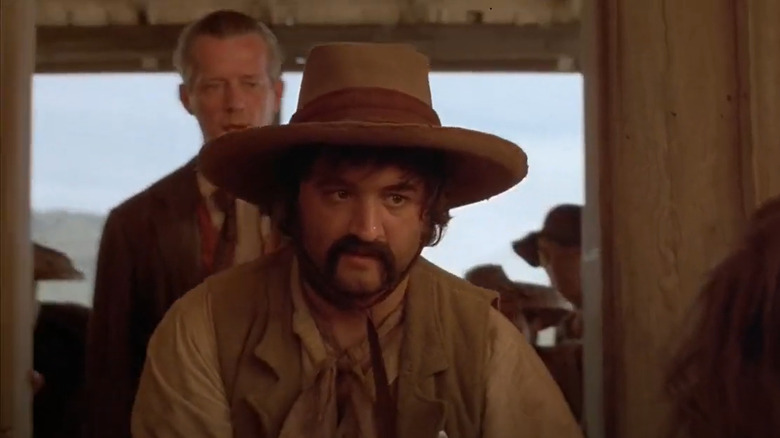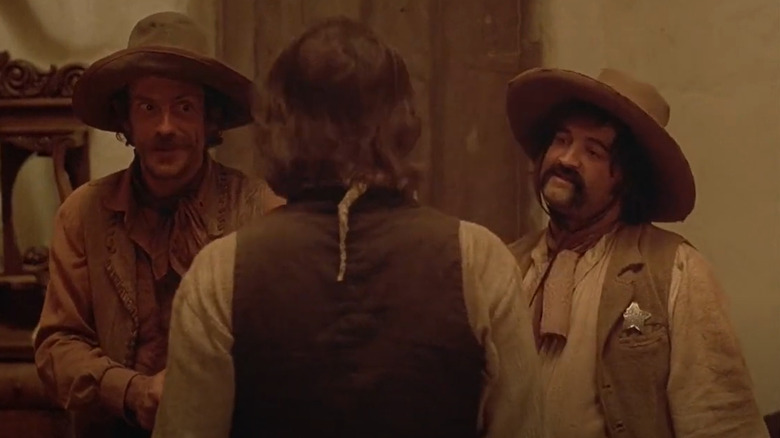John Belushi And Jack Nicholson's Bizarre Feud Explained
Jack Nicholson may have a notorious reputation: His domicile became known as "the wildest house in Hollywood" (via Far Out Magazine). But he's also a disciplined actor who earned three Academy Awards and received nominations for several more (via IMDb). Per Film Stories, Nicholson has unofficially retired from performing and is still living in Hollywood.
In contrast, "Saturday Night Live" original cast member John Belushi was a brilliant actor whose enthusiasm for drugs and partying threatened his career. According to Ultimate Classic Rock, he was fired and rehired from "SNL" several times. Ultimately Belushi died of an overdose in 1982, during the height of his fame (via The Hollywood Reporter). In 1978, the actors tried to work together, but it didn't go well.
If you or anyone you know needs help with addiction issues, help is available. Visit the Substance Abuse and Mental Health Services Administration website or contact SAMHSA's National Helpline at 1-800-662-HELP (4357).
Nicholson began shooting Goin' South in 1978
A Western comedy directed by and starring Jack Nicholson, 1978's "Goin' South" features the actor as a third-rate outlaw, Harry Moon, who has finally been caught and sentenced to execution. But he escapes the hangman's noose when Julia (Mary Steenburgen) agrees to marry him — except her plan is to make him work in her gold mine.
According to TCM, "Goin' South" was a labor of love for the director. Nicholson shot the film in Durango, Mexico, on a generic Old Western town set designed for Hollywood productions. He had already made one movie, "Drive, He Said," in 1971, but he quickly ran into problems with the new film.
For one thing, Nicholson had three editors working on the material simultaneously, and he also had multiple cameras running at once. Cinematographer Nestor Almendros recalled to a Jack Nicholson biographer, "Often two cameras would film at the same time, so we had as many as forty takes of each shot, from every conceivable angle." This already complicated shoot would become much more stressful thanks to the behavior of supporting actor John Belushi.
Belushi started acting out on set
John Belushi portrays Deputy Hector in "Goin' South," one of the sheriffs in the town of Longhorn alongside Deputy Towfield (Christopher Lloyd). According to Patrick McGilligan's Jack Nicholson biography "Jack's Life," "Belushi blustered and posed, but he was fundamentally sweet — the kind of guy Nicholson liked to take under his wing."
But the budding star's ego clashed with the genial atmosphere Nicholson wanted on the film set. McGilligan writes, "He made petty demands and fought with the 'Goin' South' producers, especially Harold Schneider, whose job it was not to lose fights." Also, Belushi and co-star Ed Begley Jr. were frequently doing drugs while shooting, which probably affected his mood as well (via The Washington Post).
All of these factors meant Belushi became increasingly "sulky" and difficult on the set. By the time shooting wrapped, his role had been cut back because of his behavior (via TCM). As you can imagine, the "Animal House" actor wasn't happy about this.
Nicholson and Belushi buried the hatchet before his death
Despite Nicholson's passion for his Western comedy, "Goin' South" was a financial disappointment and failed to impress critics. Several reviewers even cited the lack of Belushi as one of the movie's flaws (via Metacritic).
When he was asked about his experience making the film, Belushi's words were squarely aimed at the director: "Jack treated me like s*** on 'Goin' South.' I hate him" (via TCM). Yet the actor's drug intake during the making of "The Blues Brothers," which also complicated the production (via Yahoo News UK), indicates Nicholson may not have been to blame for the conflict.
By the end of Belushi's life, the pair patched things up. According to the biography "Wired," days before his death, Belushi went to the older star's house looking for advice on a project.
If you or anyone you know needs help with addiction issues, help is available. Visit the Substance Abuse and Mental Health Services Administration website or contact SAMHSA's National Helpline at 1-800-662-HELP (4357).



